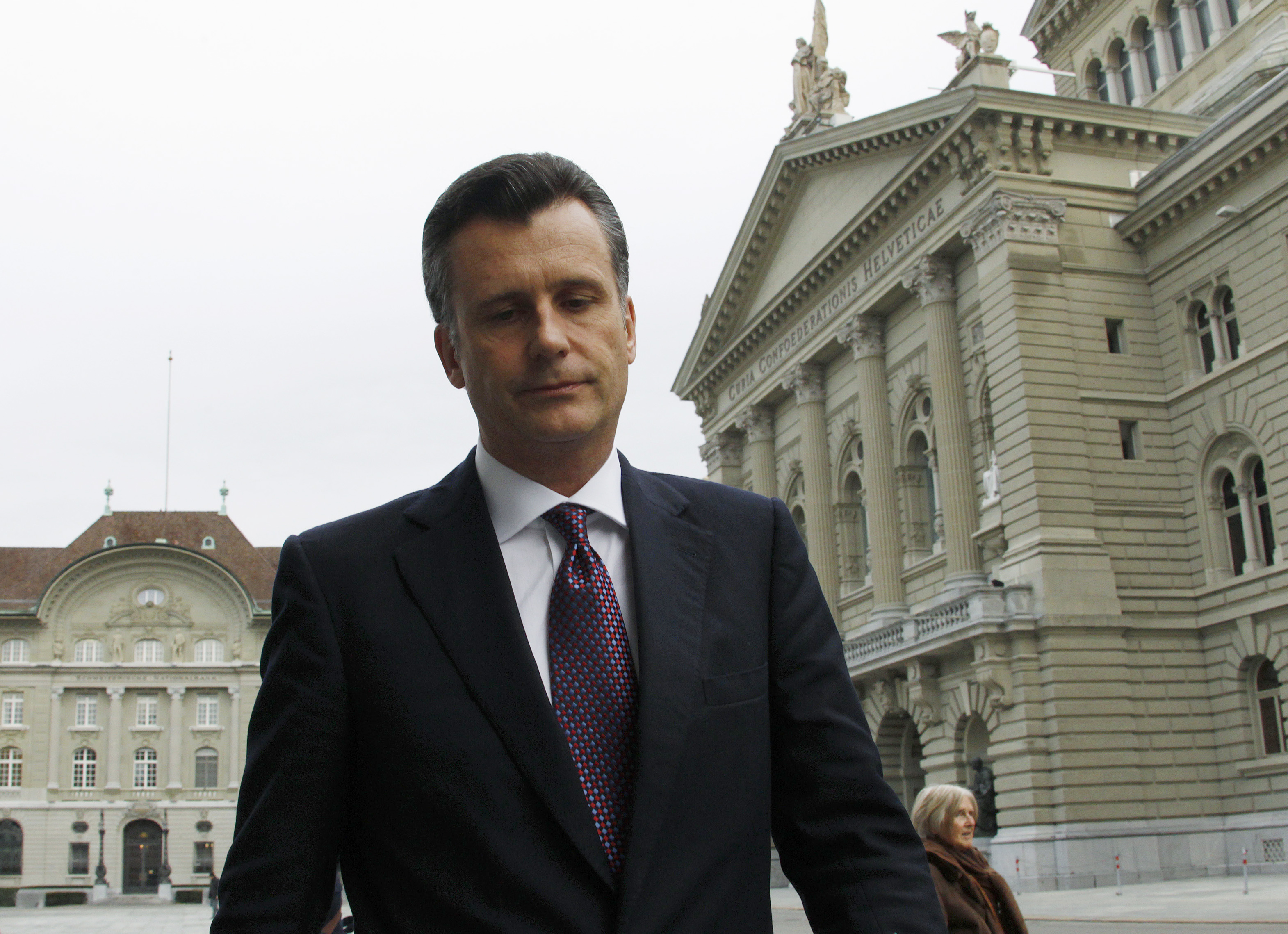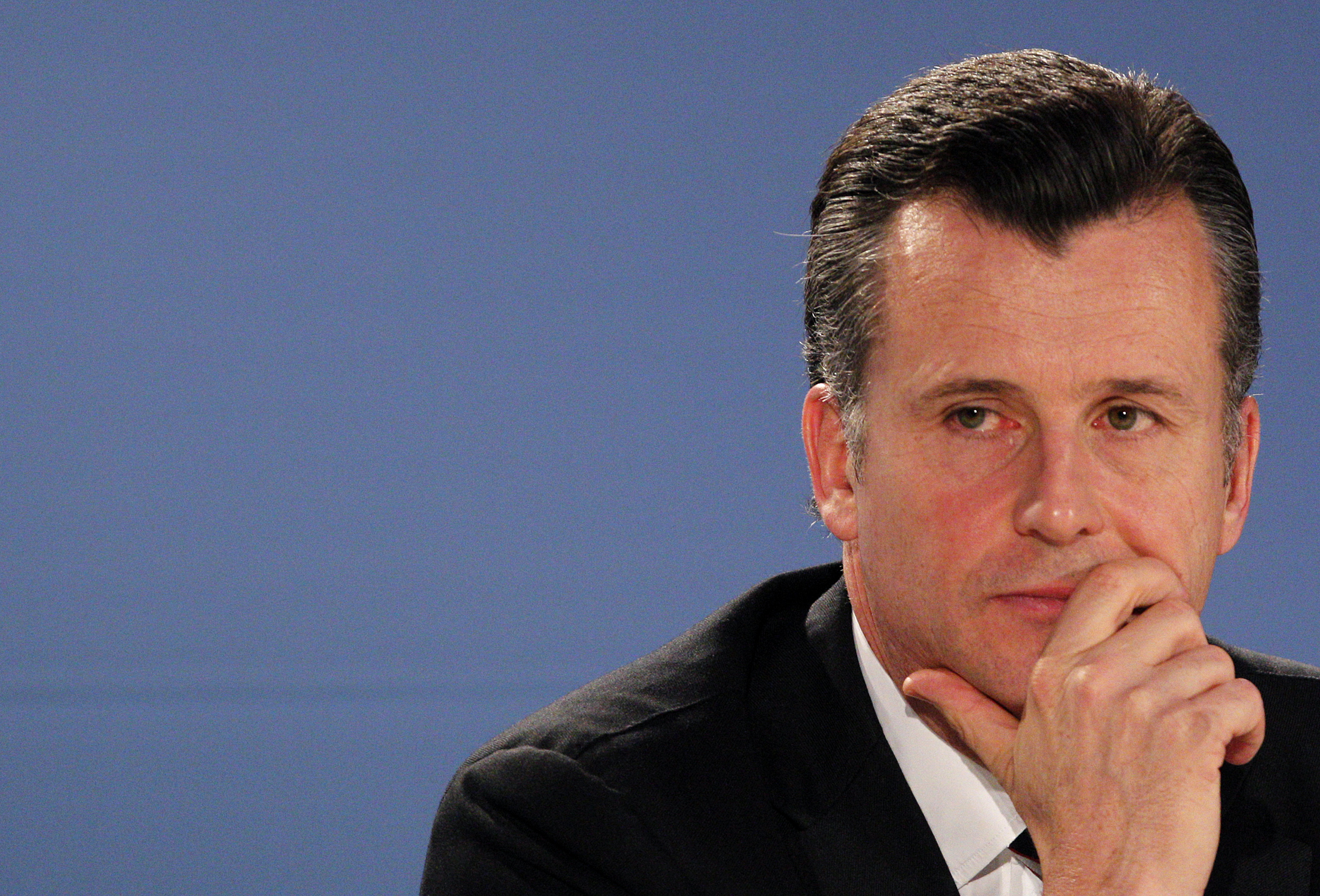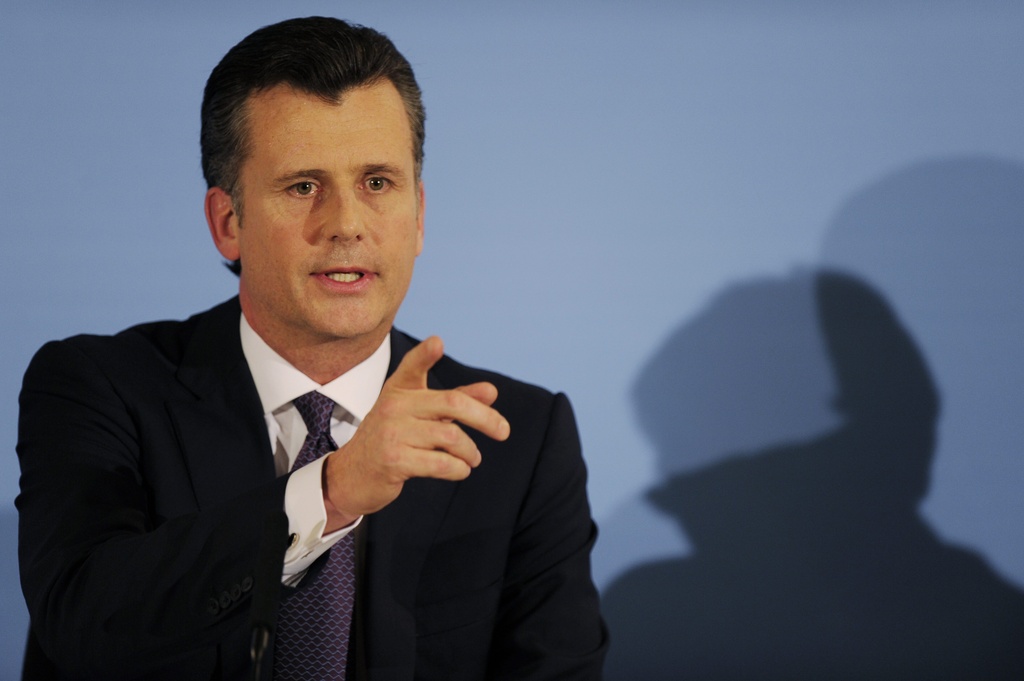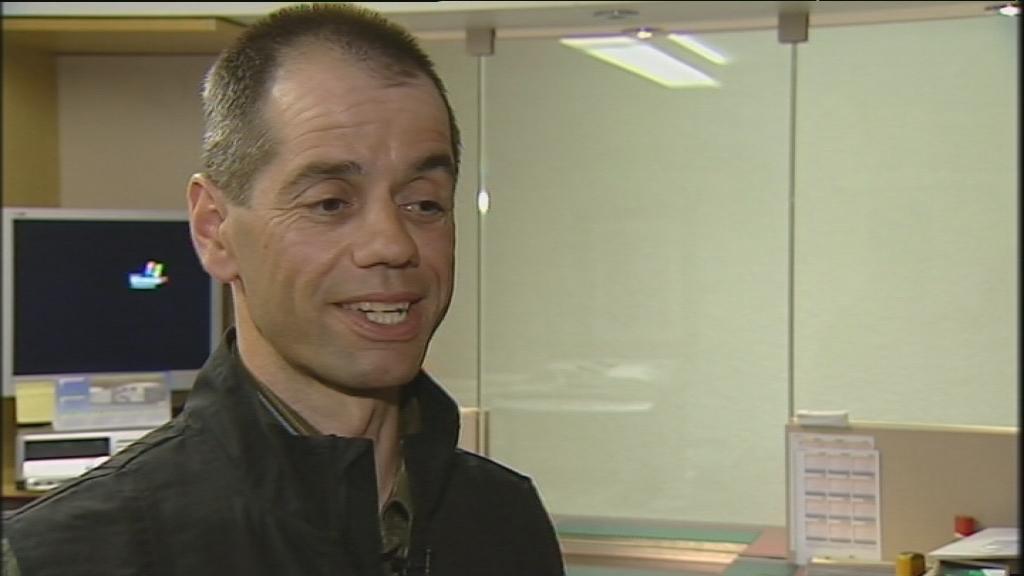Central banker quits over private currency deal

The embattled head of the Swiss National Bank, Philipp Hildebrand, has announced his resignation amid a controversy over private currency deals.
The government thanked him for his achievements as central bank governor, but his opponents in the rightwing Swiss People’s Party have accused the federal authorities of covering up and glossing over private currency speculation by senior bank members.
Hildebrand told a news conference on Monday that his resignation was with immediate effect. He explained he could not prove beyond doubt that he had been unaware of his wife’s financial transactions.
The SNB’s supervisory council said in a statement that Vice Chairman Thomas Jordan, who joined the bank in 1997, would take over as interim chairman. The free position on the governing board will be filled on a permanent basis as soon as possible.
Hildebrand said that stepping down filled him with sadness, and that the job had been an extraordinary privilege.
“I would like to think I have been a damn good central banker,” Hildebrand said. “I personally advocated strongly and early for stricter capital requirements for the big banks,” he added. “The policy of the central bank was a success in recent years.”
The bank council issued a statement in which it thanked Hildebrand for his excellent service and said it was losing an “outstanding central banker with excellent international connections”.
Credibility
Hildebrand maintained that the currency transactions had been carried out by his wife without his explicit knowledge, and they did not breach any regulations.
However, he admitted that he could not prove this, pointing out that a bank head had to be seen as credible.
“I cannot once and for all prove that it was as I said it was. My word is my bond,” Hildebrand said.
He repeated that mistakes were made in connection with currency transactions from a joint bank account with his wife and apologised for them.
“I deeply regret these mistakes as well as the entire situation.”
The SNB has published new emails of Hildebrand and his bank client advisor in a bid to shed light on controversial private currency transactions.
In a statement, his wife Kashya apologised both to the Swiss people and to her husband. “I failed my husband by not considering the perception of a ‘conflict of interest’ created by my purchase of dollars. My husband is a man of utmost integrity, and I deeply regret that my actions might have led anyone to question this.”
Call for inquiry
The People’s Party on Monday reiterated its call for a formal parliamentary inquiry and special session to discuss the affair.
“It has been established from various sides that members of the National Bank directorate, notably its president, were involved in currency speculation in the past,” said People’s Party strongman Christoph Blocher.
However, he refused to elaborate.
He argued that both the government and bank board had covered up these activities and that Hildebrand stepped down because he would not have survived an investigation.
Blocher said Hildebrand’s reputation had been tarnished beyond repair, notably on a European level.
Blocher, a former justice minister and billionaire businessman, is a vocal opponent of Hildebrand’s monetary policy and of Finance Minister Eveline Widmer-Schlumpf, who publicly backed the central bank governor.
Good governance rules
Following a meeting with Hildebrand, Widmer-Schlumpf and bank board president Hansueli Raggenbass, a parliamentary committee called for further information both from the federal administration and from the National Bank in order to tighten internal good governance regulations.
The SNB board on Saturday announced it was tightening rules for private currency deals.
“It is crucial that the bank can resume its regular activities swiftly,” said committee speaker Christophe Darbellay.
Several members of the committee raised questions about the bank board and its role as supervisory authority, according to Darbellay.
The controversy was triggered by an employee of Sarasin Bank last month. He copied documents which ended up in the hands of senior members of the People’s Party. A news magazine, believed to be closely linked to Blocher, broke the story last week, describing Hildebrand as a “speculator” and “trickster”.
In 2010, 47-year-old Philip Hildebrand became the youngest-ever chairman of the SNB.
But before reaching the pinnacle of Swiss banking, he enjoyed an unusually unSwiss career, studying in Toronto, Oxford, Harvard and Geneva, among other places, and working for employers including the World Economic Forum in Geneva and Moore Capital Management in London and New York.
Hildebrand was an imposing presence – not least thanks to his 1.94-metre athletic frame (he was a two-time national swimming champion).
But despite Hildebrand’s elegance, aplomb and charm – which some have said can border on manipulation – the majority of the Swiss media never considered him a showman.
At the end of 2011, a rumour reached the media that SNB chairman Philipp Hildebrand had used his insider knowledge for personal gain.
First the media reported that the financial affairs of the Hildebrand family had been investigated by auditors and given the all clear.
Then details started emerging about an advantageous currency trade made by Hildebrand’s wife Kashya – a Swiss-American dual national. The implication was that she had inside knowledge about the bank’s plans to weaken the franc.
This was followed by revelations in some Sunday papers that the source of the information about the Hildebrands’ accounts was none other than Christoph Blocher, former justice minister, and deputy chairman of the right wing People’s Party. Then it turned out that he’d got the information from an employee of Sarasin Bank.
The next bombshell: the Weltwoche weekly magazine, which is close to the People’s Party, announced that it had “proof” that Philipp Hildebrand himself, not just his wife, had indulged in insider dealing.
Hildebrand spoke to the media on January 5, 2012, denying any wrong doing and completely rejecting calls for his resignation.
But he did say that transparency over the financial affairs of Swiss National Bank managers needed to be improved.
On January 9 Hildebrand faced the media again, this time to resign after realising he could not prove that he had been unaware of his wife’s transactions.
(With input by Urs Geiser)

In compliance with the JTI standards
More: SWI swissinfo.ch certified by the Journalism Trust Initiative




You can find an overview of ongoing debates with our journalists here. Please join us!
If you want to start a conversation about a topic raised in this article or want to report factual errors, email us at english@swissinfo.ch.